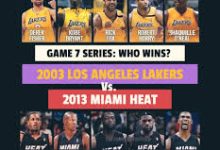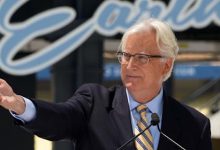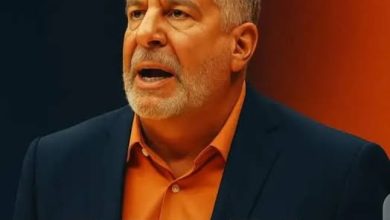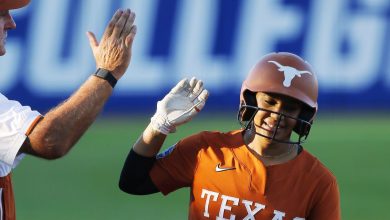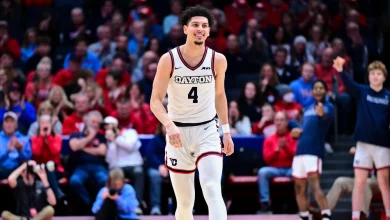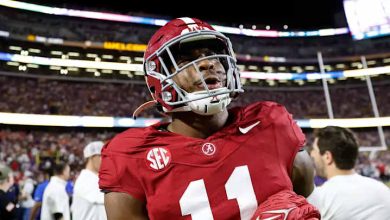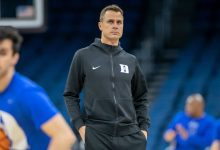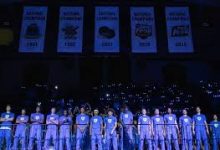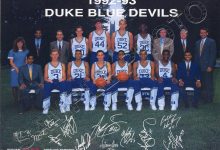BREAKING: The Buss family is entering an agreement to sell majority ownership of the Los Angeles Lakers to Dodgers owner Mark Walter, the CEO and chairman of diversified holding company TWG Global,
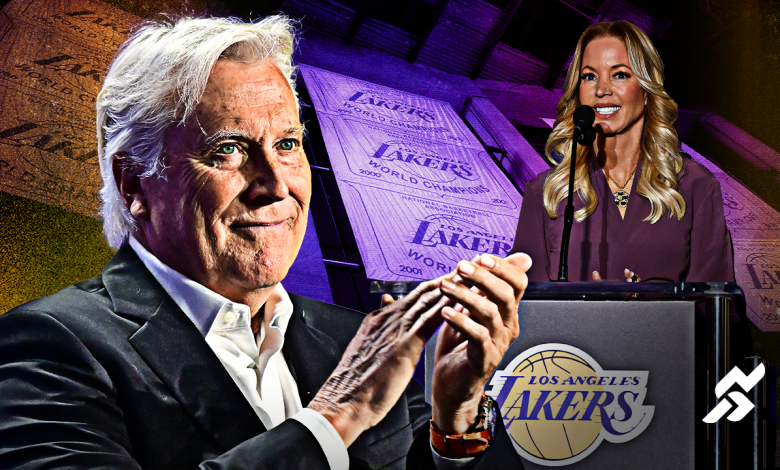
In a seismic shift that is poised to reshape the NBA landscape and upend one of the most iconic dynasties in professional sports, the Buss family has entered into a definitive agreement to sell majority ownership of the Los Angeles Lakers to billionaire investor Mark Walter, principal owner of the Los Angeles Dodgers and CEO of diversified holding company TWG Global. The deal, valued at an estimated $7.8 billion, marks the end of a storied era that began when Dr. Jerry Buss purchased the Lakers in 1979 and turned them into a global brand synonymous with glamour, dominance, and championship pedigree.
The transaction, first reported by ESPN and later confirmed by team and league sources, will give Walter and TWG Global a controlling interest in the Lakers, subject to final approval from the NBA’s Board of Governors. The Buss family will retain a minority stake in the franchise, with Jeanie Buss expected to remain involved in an advisory capacity during the transition period.
This landmark agreement signals the most dramatic ownership change in the modern history of the NBA and represents a pivotal moment for the Lakers organization, which has long stood as a family-run institution amid an increasingly corporate league. The move was driven, according to sources familiar with the deal, by a combination of long-term succession challenges, financial recalibrations in the face of the league’s shifting economic model, and the opportunity to partner with an ownership group that has already demonstrated its sports business acumen with the Dodgers.
For over four decades, the Lakers have been more than just a basketball team. Under the stewardship of Dr. Jerry Buss, the franchise became an empire built on innovation, showmanship, and excellence. From the “Showtime” Lakers of Magic Johnson and Kareem Abdul-Jabbar, to the Shaq-and-Kobe three-peat years, and later the Kobe-Pau Gasol tandem that captured back-to-back championships in 2009 and 2010, the Lakers thrived on a culture of winning and star power.
When Jerry Buss passed away in 2013, control of the team was passed down to his six children, with Jeanie Buss ultimately emerging as the controlling owner and governor. Her leadership was marked by turbulence and triumph — a series of front-office overhauls, the dramatic ousting of her brother Jim Buss from basketball operations, and, ultimately, the return to championship glory with the 2020 NBA title in the Orlando bubble led by LeBron James and Anthony Davis.
Despite the franchise’s persistent brand appeal, the last few seasons have exposed growing tensions within the ownership structure. Internal disagreements about strategic direction, ongoing luxury tax burdens, and challenges in adapting to the analytics-driven, superteam-focused NBA era created fissures that made the family-run model increasingly difficult to sustain.
One high-ranking NBA executive familiar with the matter noted, “The Buss family carried this franchise with incredible grace and success, but the league has changed. The pressure to compete at a championship level while navigating unprecedented financial and operational complexities is enormous. This deal gives the Lakers a platform for long-term competitiveness.”
Mark Walter is no stranger to Los Angeles sports. As the co-owner and controlling stakeholder of the Los Angeles Dodgers since 2012, he helped engineer one of the most successful franchise turnarounds in modern MLB history. Under Walter’s ownership, the Dodgers have won 10 division titles in 11 years, three National League pennants, and a World Series title in 2020. The team has consistently ranked among the top-spending and top-performing franchises in baseball, a testament to Walter’s willingness to invest heavily in analytics, player development, and infrastructure.
Beyond baseball, Walter is the CEO of TWG Global, a diversified holding company with investments across sports, real estate, media, and technology. His portfolio includes stakes in Chelsea FC (English Premier League), the WNBA’s Los Angeles Sparks, and several up-and-coming sports ventures, including athlete performance analytics companies and sports tech platforms.
Sources close to the deal say Walter’s plan is to bring that same level of strategic sophistication to the Lakers — combining aggressive investment with innovation in sports science, fan engagement, global branding, and digital monetization. “Walter views the Lakers not just as a basketball team but as a 21st-century media and global brand opportunity,” one insider said. “He’s thinking ten steps ahead.”
While the sale marks the end of the Buss family’s majority control, the Lakers’ brand is expected to remain consistent in its global ambition and championship aspirations. The transition will include a restructuring of the organization’s executive team, with several key figures — including current GM Rob Pelinka — expected to remain, at least in the short term, as Walter evaluates the front office and operational infrastructure.
There is also speculation that Walter will bring in sports executive heavyweights from his Dodgers and Chelsea circles to consult or potentially take on formal leadership roles within the Lakers’ hierarchy. Names such as Dodgers President Stan Kasten and Chelsea co-owner Todd Boehly have been floated by league observers as possible strategic advisors or board members for the new Lakers ownership group.
From a basketball operations standpoint, sources say Walter is committed to maintaining the team’s pursuit of elite talent. With LeBron James nearing the end of his career and Anthony Davis entering his prime, there is urgency to build a contending roster quickly. Walter’s reputation for bold moves in baseball has sparked anticipation that similar aggressiveness could follow in the NBA — possibly leading to blockbuster trades, heavy free-agent spending, and a robust expansion of player development infrastructure.
LeBron James, a central figure in modern Lakers lore and the NBA’s all-time leading scorer, is said to have been informed of the ownership negotiations weeks ago. According to sources within Klutch Sports, LeBron has maintained regular communication with Jeanie Buss and expressed appreciation for her leadership throughout his L.A. tenure.
While LeBron has yet to publicly comment on the ownership change, insiders suggest he is “optimistic” about Walter’s ambitions and views the transition as a potentially stabilizing force for the franchise as it attempts to retool for another title run. James is entering the final years of his career and may look to secure a final championship chase before potentially retiring or transitioning to a future ownership role himself.
For the Lakers, the timing of this deal could also impact their free agency strategy this summer, as the team weighs whether to pursue another star to pair with Davis and build out a younger core around the aging James.
Perhaps the most emotional component of this transaction is the farewell of Jeanie Buss as the face of the franchise. Known for her deep connection to the fan base and unwavering loyalty to her father’s vision, Jeanie has been both celebrated and criticized for her tenure. Her final act as majority owner — orchestrating a sale that keeps the franchise in stable and forward-thinking hands — is being praised by many in league circles as a responsible and selfless decision.
“Jeanie could have hung on for years,” one longtime NBA insider said. “But she saw the writing on the wall. She wanted to ensure the Lakers were positioned to succeed in the next generation. That’s the mark of a true steward.”
In a statement released shortly after the sale was confirmed, Jeanie said:
“This franchise has been my family’s life’s work, and it will always be a part of who I am. I believe now is the right time to transition leadership to ensure the Lakers remain not only competitive but visionary. Mark Walter has proven himself to be a world-class leader in sports and business, and I trust that he will honor the legacy of the Lakers while forging a new chapter of excellence.”
League-Wide Reaction
The NBA community reacted swiftly to the news. Commissioner Adam Silver issued a statement lauding the Buss family’s contributions while expressing confidence in the incoming ownership.
“The Buss family helped shape the modern NBA. Their commitment to excellence has made the Lakers one of the most successful franchises in all of sports. We welcome Mark Walter and TWG Global to the NBA family and look forward to their contributions to the future of our league.”
Players, executives, and alumni echoed those sentiments. Magic Johnson tweeted:
“Jeanie and the Buss family built something that will never be forgotten. Much love and respect. Excited to see what’s next for the Lakers with Mark Walter — a proven winner who knows how to build champions.”
The deal is expected to close before the start of the 2025–26 NBA season, pending the NBA’s formal approval process. In the coming months, Walter and TWG Global will begin integrating new leadership structures, aligning strategic priorities, and likely initiating a long-term facilities upgrade plan — which could include significant renovations to Crypto.com Arena or the pursuit of a Lakers-specific training and performance center.
The sale may also reignite discussions about the next phase of Lakers media rights and potential global expansion opportunities — particularly in Asia and Africa, where Walter has existing ventures.
For Lakers fans, this moment is bittersweet. The Buss name will always be sacred in Los Angeles. But the future of one of basketball’s crown jewels now lies in new hands — guided by a proven winner with bold vision, deep pockets, and a hunger to build another empire in purple and gold.

